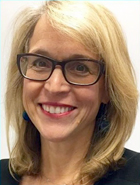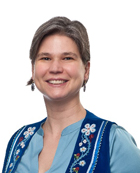
Dr. Rachel Yehuda, Ph.D. is a Professor and Vice Chair of Psychiatry, and Professor of Neuroscience at the Icahn School of Medicine at Mount Sinai. She is also the Mental Health Patient Care Center Director at the Bronx Veterans Affairs. She has published several hundred scientific papers and compiled over 10 books examining diverse aspects of traumatic stress, and has studied PTSD and resilience in combat veterans, survivors of genocide, interpersonal violence and terrorism, as well as in animal models. Her work has focused on neuroendocrinology, neuroimaging, genomic and molecular biological studies of trauma, experimental therapeutics (pharmacological and psychotherapy trials), biomarkers, genetic and epigenetic heritability, gender differences, and suicide.
Keynote Title: The Effect of Trauma on the Next Generation
Learning Objectives:
Abstract:
There has been much interest in trying to understand whether the effects of trauma are passed down to the next generation, or even subsequent generations. Recent advances in molecular biology and epigenetics have provided paradigms for understanding long term effects of stress. Epigenetic research in animals has provided models for how such effects might be transmitted and there has been great speculation regarding whether and to what extent such mechanisms can be applied towards understanding some of the enduring effects of trauma in offspring of survivors. This presentation will focus on the consequences of parental trauma and will examine the question of whether such effects are biologically ‘transmitted.” Most of the research has been conducted on adult children of Holocaust survivors but is supported by observations in children born to pregnant women who survived the world trade center attack on 9/11. Findings demonstrating epigenetic marks associated with parental trauma effects of post-traumatic Stress Disorder (PTSD) will be reviewed, and discussed in the context of whether they represent generational “damage” resulting from adversity or indicate attempts to adapt to environmental challenge to achieve resilience.

Dr. Janet Smylie is a family physician and public health researcher. She currently works as a research scientist in Indigenous health at St. Michael's hospital, Centre for Urban Health Solutions (CUHS), where she directs the Well Living House Applied Research Centre for Indigenous Infant, Child and Family Health. Her primary academic appointment is as a Professor in the Dalla Lana School of Public Health, University of Toronto. She maintains a part-time clinical practice with Inner City Health Associates at Seventh Generation Midwives Toronto. Dr. Smylie has practiced and taught family medicine in a variety of Aboriginal communities both urban and rural. She is a member of the Métis Nation of Ontario, with Métis roots in the prairies. Her research interests are focused in the area of addressing the health inequities that challenge Indigenous infants, children and their families through applied health services research. Dr. Smylie currently leads multiple research projects in partnership with First Nations, Inuit, and Métis communities/organizations. She holds a CIHR Applied Public Health Research Chair in Indigenous Health Knowledge and Information and was honoured with a National Aboriginal Achievement (Indspire) Award in Health in 2012. A Métis woman, Dr. Smylie acknowledges her family, teachers, and lodge.
Keynote Title: Story Medicine: Indigenous Approaches to Understanding and Addressing Trauma
Learning Objectives:
Abstract:
The concepts and constructs of mental illness and psycho-trauma as understood in modern psychology and psychiatry are not well aligned with traditional Indigenous worldviews and social systems. This can limit the relevance and effectiveness of mainstream diagnostic and treatment approaches. This situation is further complicated by the fact that historic and ongoing Euro-colonial policies and practices and anti-Indigenous racism persist as primary and root determinants of Indigenous mental, emotional, and spiritual imbalance and/or anguish. Given the striking and disproportionate burden of trauma and its associated co-morbidities among Indigenous populations there is a pressing need to identify and advance culturally relevant and effective healing modalities and workforce. Current policy and evidence direct us to ensure that this work is developed for and by Indigenous people.
Acute and chronic affective and cognitive conditions that interfere with fulsome engagement in key life activities cut across human societies and are commonly associated with traumatic life events. Indigenous worldviews and social structures are extremely diverse and there are countless distinct and nation specific understandings and responses to what might be externally interpreted as psycho-trauma. Emerging protective factors and healing approaches that cut across some (but not all) Indigenous societies will be discussed. These include: the contextualization of trauma and responses to trauma within everyday belief systems that centre spirituality, life meaning, and ongoing individualized roles and responsibilities; societal structures that are rooted in strong relationships to human kin and broader ecosystems; strength-based and affirmative treatment approaches; ceremonial healing practices; and storytelling traditions.
Building on First Nations and Métis story-telling traditions, our team of researchers has worked with Indigenous community partners and elders to adapt Narrative Exposure Therapy (NET) for use in Indigenous community contexts. This presentation will finish with an overview of this pilot study.